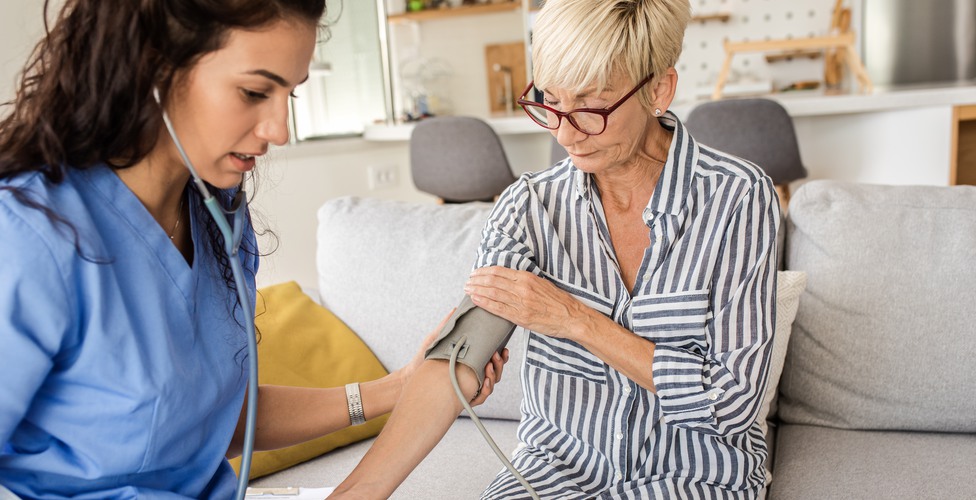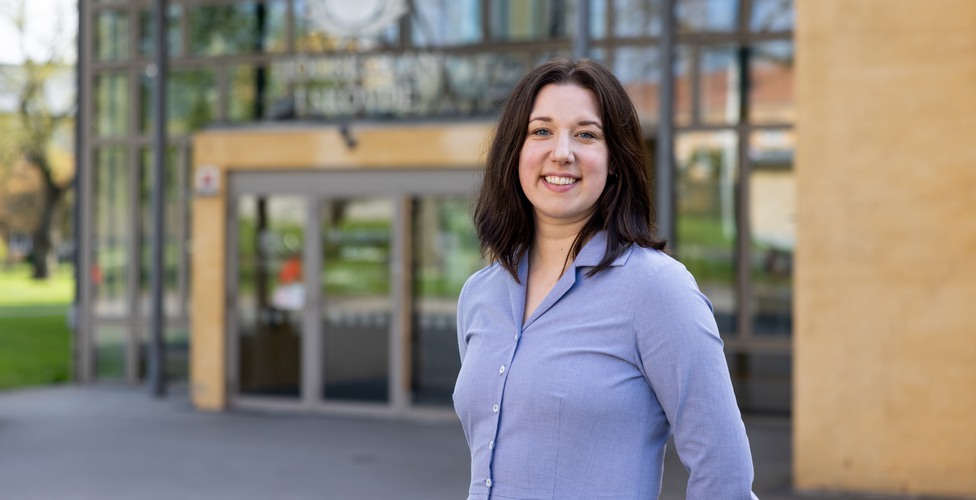A growing population of older persons, with complex healthcare needs, is a major challenge for Sweden’s healthcare system as it is currently structured. Lina Emmesjö has studied an integrated healthcare model, in which doctors visit patients in the patient’s own home. Her research shows that findings are positive. The patients are more in control of their own care and collaboration within the healthcare team is improved.

Sweden’s population is ageing, and many older persons require care from several different healthcare providers. Meeting the healthcare needs of a growing population of older patients is a major challenge for our healthcare system.
“There’s a risk that a lack of clarity about who is responsible for the older person’s healthcare needs will lead to them falling between the organisational cracks,” says PhD student Lina Emmesjö.
Lina Emmesjö is a PhD student in nursing at the University of Skövde and studies at the Health and Welfare Research School at Jönköping University. She has researched whether an integrated healthcare model can increase opportunities for collaboration between healthcare providers. The focus is on the Mobile Integrated Care Model (MICM) as greater knowledge of the impact of this care model on everyone involved was needed.
The home is crucial to engagement in one’s own care
To gather her data, Lina Emmesjö interviewed patients, their next of kin, registered nurses and physicians about their expectations, perceptions and experiences of MICM.
The registered nurses and home health care physician thought the model was the best way of working in home healthcare. The patients and their families felt that their lives were easier since they began receiving healthcare through MICM.
“The continuity of care and seeing the patient as a person became building blocks, forging relationships between the healthcare professionals, the patient and their next of kin.”
The responses also showed that there are differences in healthcare between those municipalities that have introduced MICM, and that there are differences in the healthcare provided within MICM compared with that of other healthcare providers. It also emerged that the structure of the model has an impact on people’s ability to engage in their own healthcare.
“The structure in which healthcare is provided in the home increased patients’ opportunities to engage in their own care. The home became crucial during the pandemic because patients were isolated in their homes, only seeing home healthcare staff.”
Vital in the ongoing transition
The results of the research are relevant to all municipalities and healthcare centres in Sweden in the ongoing transition to Integrated and person-centered care. The results may also be relevant internationally, as meeting the healthcare needs of the growing older population is an international challenge.
“After gaining my PhD, I will continue working at the University of Skövde. I’m planning to continue my research too, since the data I gathered offers more to explore, focusing on digital technology and person-centred care.”
Lina Emmesjö’s research project was financed by the Kamprad Family Foundation for Entrepreneurship, Research & Charity. She will be defending her thesis: “Within an integrated care model – registered nurses’, physicians’, patients’ and their next of kin’s perspectives” at the University of Skövde on 5 June.

